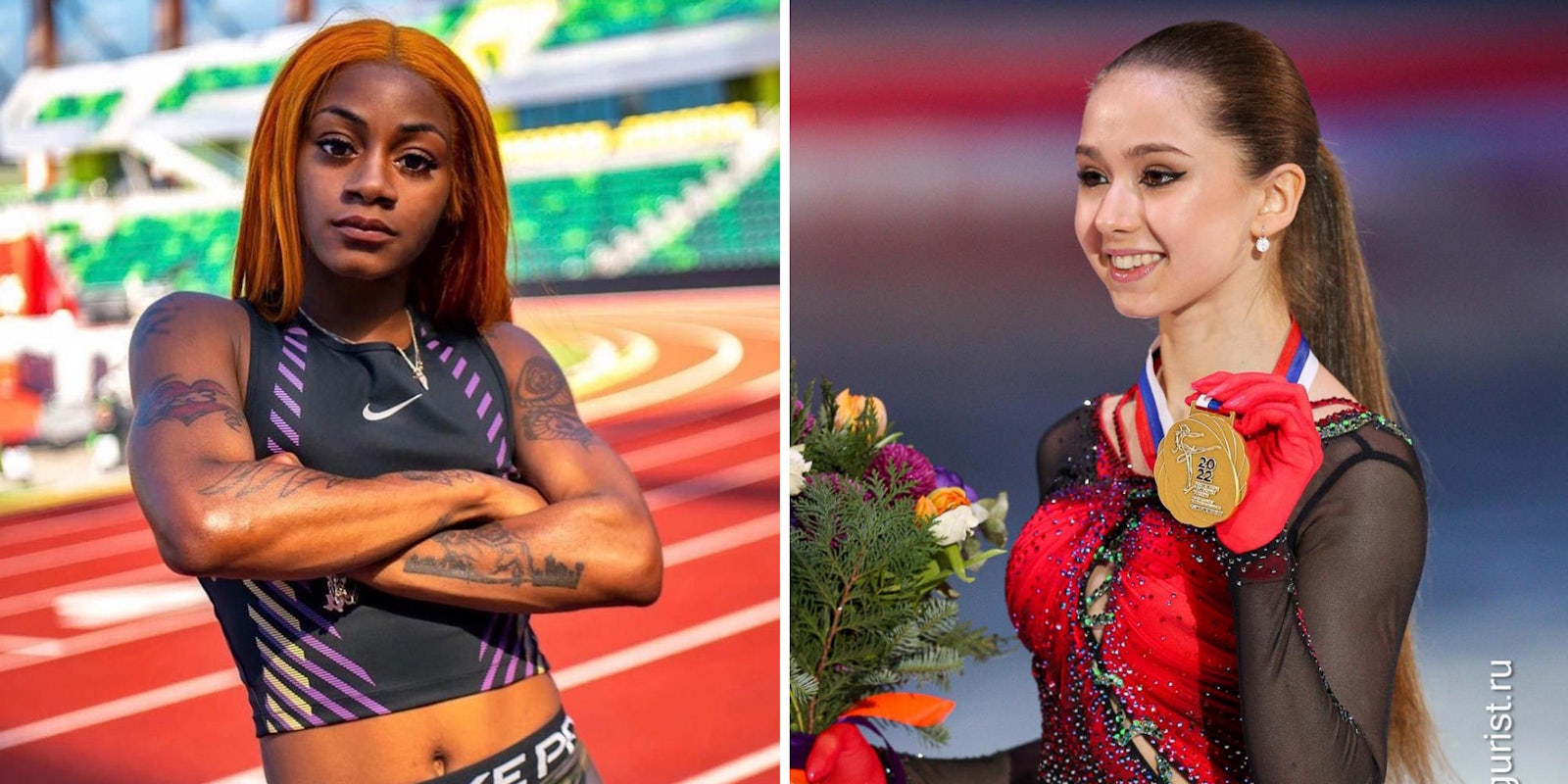The Court of Arbitration for Sport (CAS) ruled early Monday that 15-year-old Russian figure skater Kamila Valieva would be allowed to compete in the women’s individual figure skating event despite receiving a positive drug test prior to the Winter Olympics. It’s a decision that’s drawing plenty of ire online and is leading more than a few people—including one athlete who was suspended from participating in an Olympics after a positive drug test—to call out the International Olympic Committee (IOC) and CAS for hypocrisy.
Valieva, who is skating on behalf of the Russian Olympic Committee (ROC) after Russia was banned from the Olympics for four years for its state-run doping program and manipulated test results, tested positive for trimetazidine (a banned heart medication). Although Valieva’s test was dated Dec. 25, 2021, the results of her test weren’t publicly known until the medal ceremony for the team figure skating competition—where the ROC won the gold medal thanks in part to Valieva’s contribution—was delayed. As the start of the women’s individual figure skating competition drew closer, questions of Valieva’s eligibility came up in an expedited hearing.
In its ruling, the CAS said that while Valieva can skate in the women’s individual event (which she is heavily favored to win) and that it “considered fundamental principles of fairness, proportionality, irreparable harm and the balance of interests.” Among those factors is Valieva’s age: At 15, she is still considered to be a minor and is classified as a “protected person.” But the IOC noted that Valieva won’t get any kind of ceremony in the case that she wins until the matter is resolved.
“Should Ms. Valieva finish amongst the top three competitors in the women’s singles skating competition, no flower ceremony and no medal ceremony will take place during the Olympic Winter Games,” the IOC said in a statement.
The decision instantly drew ire from skating fans, and organizations such as the World Anti-Doping Agency, the U.S. Olympic and Paralympic Committee, and the Canadian Olympic Committee expressed disappointment. While people were sympathetic toward Valieva because of her age, they also didn’t think that she should be allowed to compete.
“Athlete who violates doping cannot compete in the game,” Yuna Kim, the Korean figure skater who won the women’s individual event in 2010, wrote on Instagram. “This principle must be observed without exception. All players’ efforts and dreams are equally precious.”
Johnny Weir, a former U.S. figure skater who commentates figuring skating events for NBC, condemned the decision as well.
But for some fans, the decision to allow Valieva to skate reeked of hypocrisy compared to its decision around American sprinter Sha’Carri Richardson, who was suspended from participating in the Tokyo Olympics for testing positive for marijuana. Richardson said that she had taken an edible to cope with the loss of her mother.
Richardson took to Twitter to ask why her situation was treated differently.
“Can we get a solid answer on the difference of her situation and mines?” Richardson tweeted. “My mother died and I can’t run and was also favored to place top 3. The only difference I see is I’m a black young lady.”
People quickly took to highlighting the double-standard (and racial bias) in how Richardson and Valieva’s situations were handled while some believed that Richardson deserved an apology for how she was treated.
As Richardson and others noted, THC, a primary component in marijuana, isn’t even a performance-enhancing drug and wouldn’t have affected her performance.
The women’s individual figure skating event starts on Tuesday morning local time (Monday night in the U.S.).



 (@amaritbrar)
(@amaritbrar) 